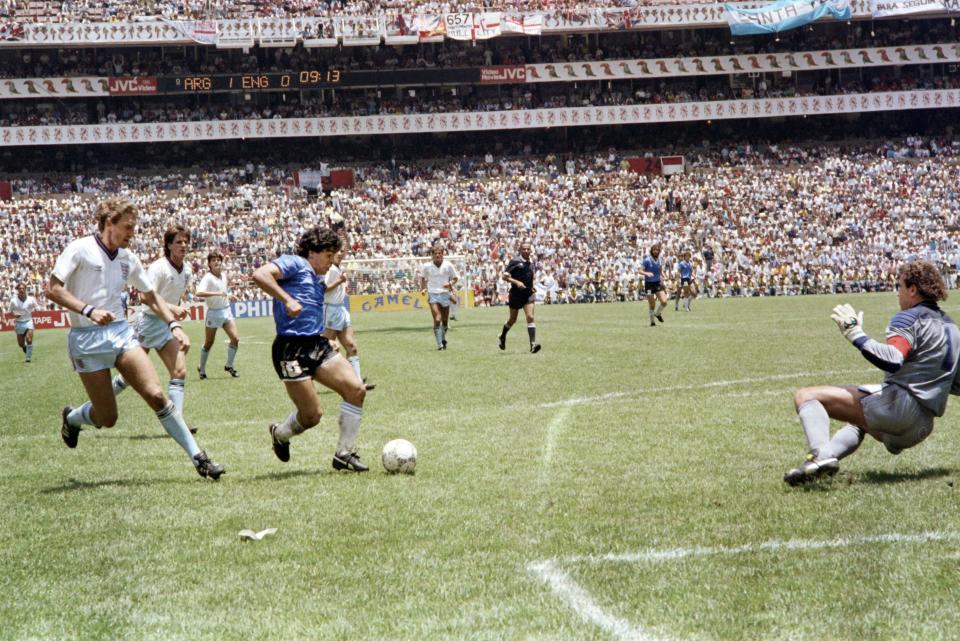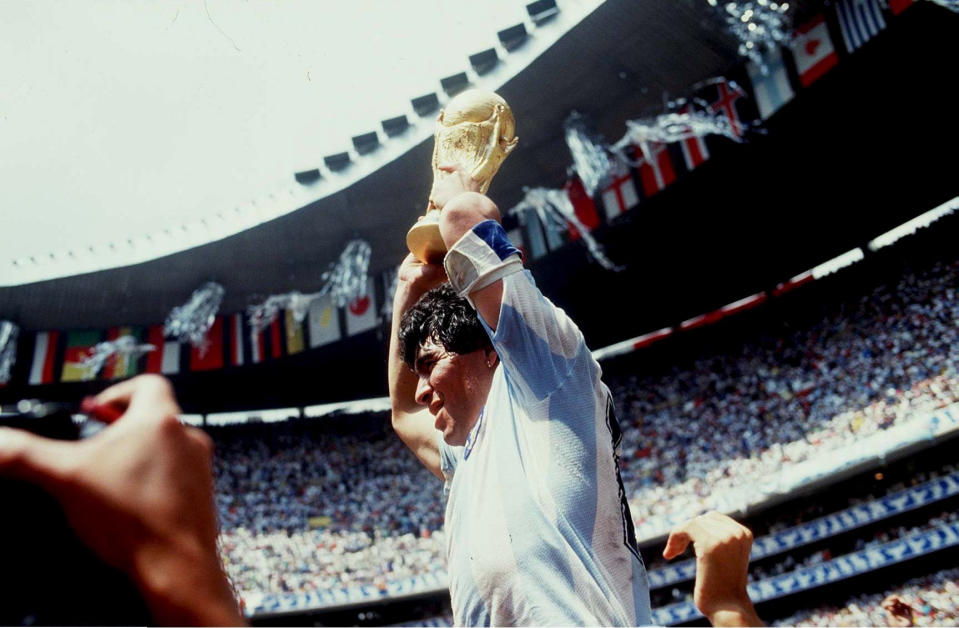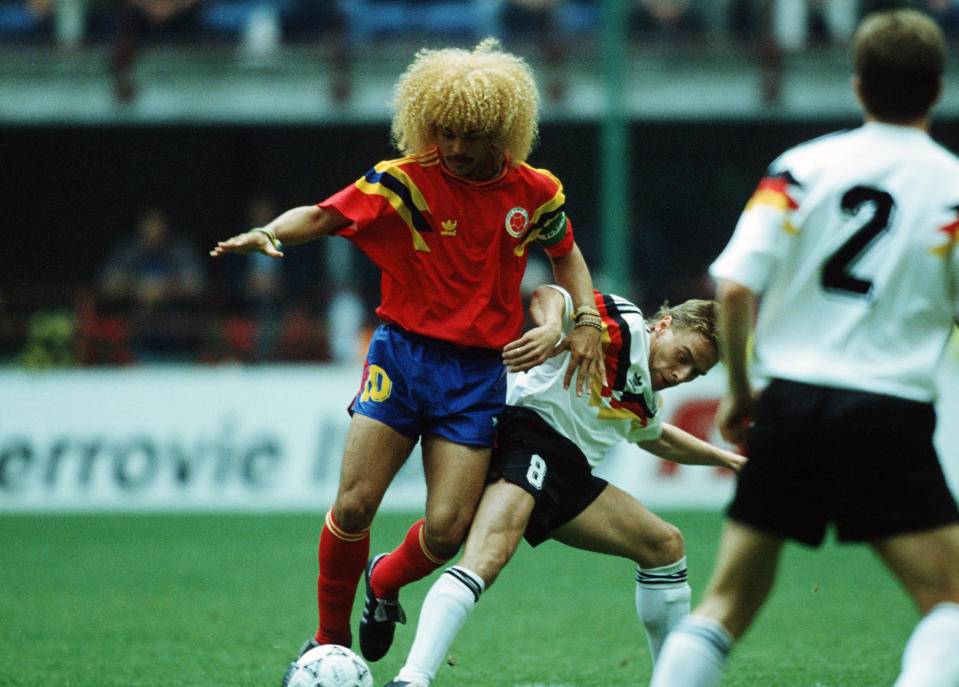Colombia ‘86: Remembering when the World Cup was cancelled

Thinking back on tournaments past, each World Cup has a defining moment which echoes through the collective memory of football. The 1954 World Cup had the ‘Miracle of Bern’, where West Germany secured their first tournament triumph after coming back from two goals down to beat Gusztav Sebes’ legendary Hungary side. In 1966, we had Kenneth Wolstenholme’s “they think it’s all over”; in 1970, Jairzinho scored in every game; in 1974, the world saw the Cruyff turn for the first time; in 1978, there was the alleged ‘fixed’ game between Argentina and Peru, and so it goes on.
READ MORE: World Cup 2018 – the team by team guide
There is only one edition of the World Cup which nobody remembers, and that is Colombia ‘86. There are no iconic images from the tournament, no footage survives and there is barely a mention of it in FIFA’s official history. That is because Colombia ‘86 never happened. It remains the only World Cup to be cancelled after the host nation had formally been decided, though Mexico later stepped up and took on the role of hosts.
Origins of the tournament
The 1986 World Cup was initially granted to Colombia in 1974, this after an unopposed bid was approved by the FIFA Executive Committee. By the early eighties, however, the Colombian government was seriously reconsidering the wisdom of hosting the tournament.
READ MORE: The top footballers who WON’T be at Russia 2018
Not only was the country in the grip of one of the world’s most infamous narcotics crises – the Medellin cartel, as globally popularised by Netflix’s Narcos, was in its ultra-violent ascendancy at this stage – the government was also facing a brutal internal conflict against various left-wing guerrilla groups. The FARC, M-19 and other insurgent organisations were a huge thorn in the side of the Colombian authorities. Combating their influence cost an enormous amount of money, while the national debt had grown to menacing proportions.

With the World Cup expanded to 24 teams ahead of Spain ‘82, the cost of the tournament became an increasing source of anxiety for a government fighting a war on several fronts. In November 1982, the situation finally came to a head. As reported in The New York Times, Colombian president Belisario Betancur announced: “The 1986 World Football Championship will not be held in Colombia. We have a lot of things to do here, and there is not enough time to attend to the extravagances of FIFA and its members.”
READ MORE: Why an underwhelming World Cup draw could produce a heavyweight knockout stage
Citing economic concerns – there was also the small issue of a worldwide recession at the time, while the main national export, coffee, was on the wane – Colombia officially renounced their host status. According to contemporary reports there had been little serious planning with regards to the necessary infrastructure and facilities, with FIFA officials becoming increasingly exasperated with successive Colombian governments and their failure to live up to expectations.
Mexico to the rescue
The hosting process was quickly reopened, with Canada, Mexico and the United States all entering the race. Come May 1983, Mexico were named the new hosts by a unanimous vote. So the tournament of Diego Maradona, Jorge Valdano, Gary Lineker, Socrates, Rudi Voller and Michel Platini could have taken place over 2,000 miles to the south-east in febrile and embattled Colombia.
READ MORE: The 5 most lethal groups of death at the World Cup
Maradona’s ‘Hand of God’ against England could have happened at the Atanasio Girardot Stadium in Medellin as opposed to the Estadio Azteca in Mexico City. In an alternative universe, it was brave hosts Colombia – rather than Mexico – who went on a storming run to the quarter-finals only to go out on penalties to West Germany.

In reality, Colombia failed even to qualify after losing in the CONMEBOL play-offs to Paraguay, who eventually progressed to the Round of 16 only to be downed by a Lineker-inspired England. Mexico’s candidacy was almost thrown into turmoil by the 1985 Mexico City earthquake which killed and injured tens of thousands of people, but the new hosts somehow managed to recover in time to stage a competition which seemed cursed with misfortune.
SLIDESHOW: The 32 star players for every World Cup nation (Click image below)
READ MORE: FIFA approves VAR use at the World Cup
Colombia would return for Italia ‘90 and again for USA ‘94, but any hope of hosting the World Cup over the following decades dissipated with their early withdrawal (not to mention the murder of Atletico Nacional defender Andres Escobar after a high-profile own-goal at the tournament). They would not bid again until 2014, and that approach was swiftly dropped. As one of the few South American countries never to have staged the competition, Colombia may still harbour ambitions of one day organising the greatest showpiece in world football. Until then, the half-forgotten ghost of Colombia ‘86 will haunt their history in the World Cup.



